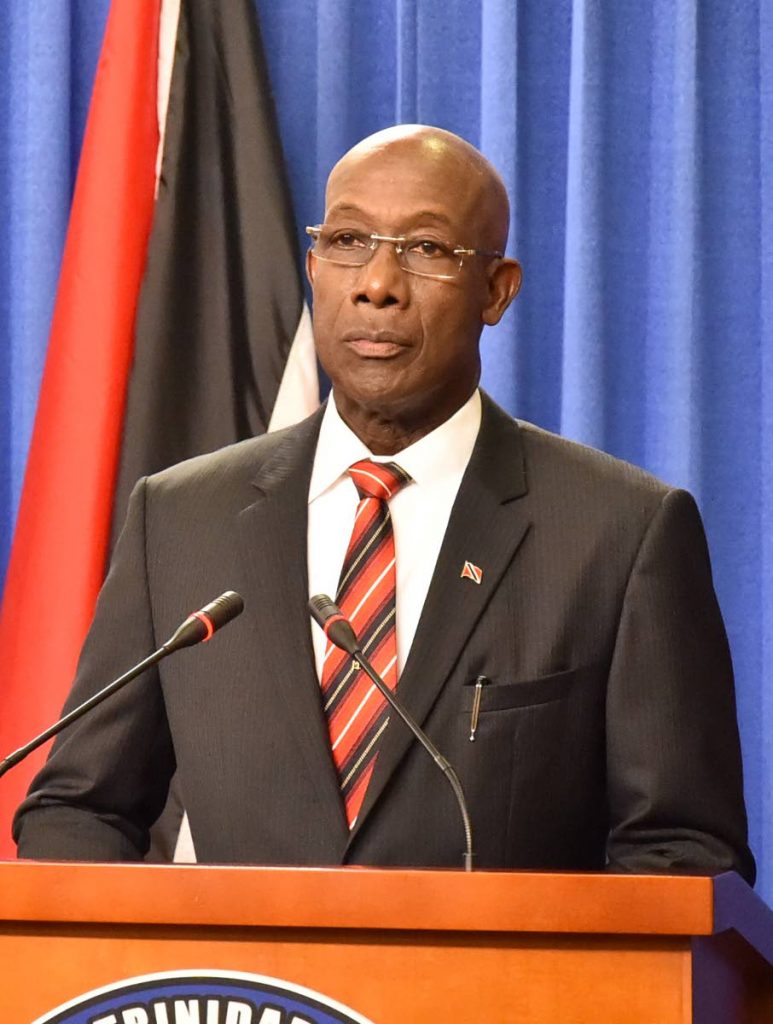Clean party politics

Prof Ramesh Deosaran
Party. Among its definitions is “a group of people united in a cause, especially a political group organised on a national scale,” (Concise Oxford). While political parties have become foundation pillars of parliamentary democracy, they have not brought the peace, order and good government as expected. A main reason being, in the competition for political power and personal aggrandisement, parties become corrupt and distracted from sworn oaths.
Obviously aware of the contamination of parties across the Caribbean, Barbados’ new Prime Minister, Mia Mottley, 52, announced as a top priority, the need for all ministers to subscribe to a strict code of ethics and a declaration of assets until the establishment of an Integrity Commission. A cleansing act.
Back home, former PM, Basdeo Panday, 85, dreams of “an end to TT’s politics of division” and seeing his daughter’s party become successful. Now, sometimes we seem to forget that politics here is party politics – the politics OF division. Uniting opposition groups (NAR-style) is different from national unity. And Panday knows that. When he became PM in 1995 (via coalition with NAR), he called for “a national unity government” to include “some” PNM ministers. Patrick Manning’s “stand alone” PNM showed no enthusiasm.

Democracy’s essential spirit resides in the people’s will over government, but not all the people. The will of the majority, however small, dominates, presenting a continuing dilemma if not social injustice, according to the talented 1974 Wooding Constitution Report. The question is not which party wins more seats, but the difference in actual votes.
In 2002, for example, the PNM won with 308,762 votes and 20 seats as against 284,391 and 16 seats by the UNC. That was PNM 51 per cent vs UNC 47 per cent of those voted. In 2010, People’s Partnership (PP) won with 432,026 votes and 29 seats against the PNM 285,354 votes and 12 seats. That was PP 60 per cent vs PNM 40 per cent votes. I know this is an old, controversial story. But the implications are serious to have such large proportions of “alienated” citizens – of whatever colour, race or creed – left pleading and quarrelling as the opposition. Rather than operating as a “check and balance” to government, it breeds frustration and obstruction. This now requires refreshed, critical thinking.

One-sided political patronage makes it difficult to have national unity for the country’s social and economic development. But if you have a political party without some patronage, you will suffer a membership drought. It was Kamla Persad-Bissessar who, as opposition member when the Equality of Opportunity Bill was discussed, argued that the most prominent type of discrimination is “political discrimination by patronage.” Each party, having quarrelled against patronage, then moving from opposition to government, quickly discovers the necessity of patronising its key supporters and financiers. The stream of independents remains narrowed, marginalised though sometimes saved by the broad-minded, merit-driven grace of the president.

In the present circumstances, is asking for national unity as Panday, Persad-Bissessar and Dr Keith Rowley did, remains just an enticing illusion? What does a minister or parliamentary secretary do when faced with requests or pressure for patronage after taking the following oath of office?:
“I do swear by (Almighty God, Gita, Quran, etc) that I will bear true faith and allegiance to Trinidad and Tobago and will uphold the Constitution and the law, that I will conscientiously, impartially, and to the best of my ability discharge my duties as minister (or parliamentary secretary) and do right to all manner of people without fear or favour, affection or ill-will.”
Mottley is taking front with challenges of party politics. Last week, she warned her landslide majority that if she catches any of them doing wrong, she is perfectly willing “to convert herself into the most formidable opposition leader of her government.” She advised them: “Never betray your trust or the sanctity of the covenant you have willingly entered into.”
At the ceremonial invocation, Bishop Rev Gerry Seale advised them “not to get puffed up with pride by having power go to your heads.” He added: “Serve with integrity. If you have come for a piece of the fatted calf, you at the wrong table. God will bring you down.” That’s what some of us are saying – keep our party politics clean, honest and serving all people through strong, courageous leadership.

Comments
"Clean party politics"